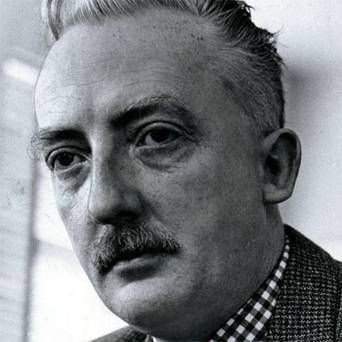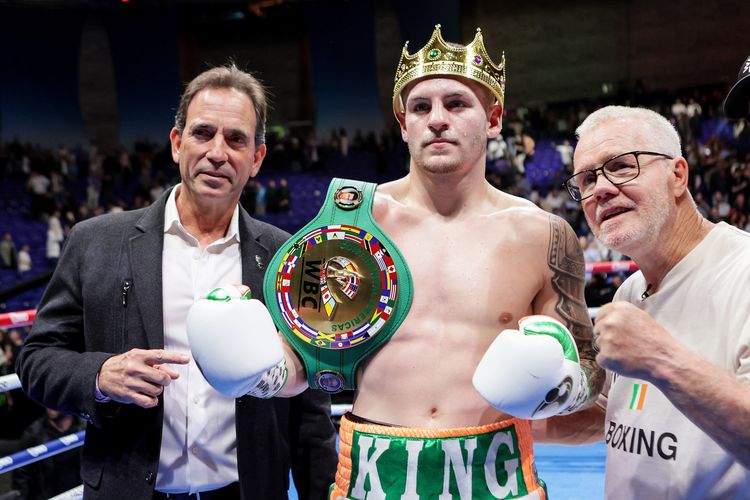The central character in Molly Aitken's debut novel is a "wonderful creation," according to the Irish Times' reviewer.
Page Turner / Edited by Peter McDermott
At the beginning of the second chapter of “The Island Child,” its central character Oona says: “If I was to tell the story of my daughter, Joyce, I wouldn’t start with her birth. I would begin with the first time I lost her. She was 4 or 5, wearing an egg-yolk yellow dress I’d sewn for her, and we walked through town together. She skipped beside me, scorching away the last of the winter bitterness with her bright glow. We’d eaten our first ice creams of the year and there was chocolate on her chin when she turned her face up to me and laughed. We were hand in hand, her blood pulsing in my palm. We were joined, and suddenly she was gone.”
Molly Aitken said describing her first novel, “When Oona becomes fascinated by a wild boy and his even wilder mother, she longs to escape the rigidity of her life. Deeply rooted in Irish folklore, it’s the story of mothers and daughters set in Ireland’s recent past.”
“An exquisite debut from an exciting new voice in Irish fiction,” the Daily Telegraph’s reviewer commented. “There’s a lot to love about ‘The Island Child.’ Aitken’s prose is more generous—and more old-fashioned—than that of her fellow countrywoman, Sally Rooney.
“She writes with particular power when her characters are in extremis,” the reviewer continued, “This could so easily have been overdone. Aitken takes it right to the line, and no further—that is a real skill.”
The Irish Times’ reviewer said that Oona, raised in a Catholic family on a tiny island off Ireland’s west coast, “is a wonderful creation, alive on the page. The success of the book is the vibrancy of its writing and narrative voice. Readers will be carried along by Oona whose struggles are full of pathos.”
“Aitken brings a gut-pummeling mix of folklore, feminism and psychological trauma to her wild debut tale of mothers impelled to take out on their daughters the sins committed against them,” the Daily Mail’s reviewer said.

Molly Aitken
Date of birth: April 13, 1991
Place of birth: Perth, Scotland
Spouse: Artur Gower
Residence: Sheffield, England
Published works: “The Island Child.”
What is your writing routine? Are there ideal conditions?
I wake up at about 7 a.m., caffeinate and am at my desk by 9 a.m. I switch off my phone and internet and get to work. I believe nature can solve any plot holes. As soon as my writing threatens to stagnate, I leave the house. It’s a 20-minute walk through the woods, followed by a pant-inducing climb up the valley and out into the open air of the Peak District. As soon as I’ve reached this point, I’ll have unknotted my story’s issues, and it’s a race home to try and reach my computer before I forget my ingenious ideas. I haven’t had a problem big enough to make me hike through the Peaks yet, but book two is still in its first draft so it could be any day now.
What advice do you have for aspiring writers?
Keep going. Your chance of getting published is greatly improved if you finish a project. Also make writing friends. My biggest champions and editors are my writing groups.
Name three books that are memorable in terms of your reading pleasure.
Edna O'Brien's “The Country Girls,” Marian Keyes’s “Grown Ups,” Naoise Dolan's “Exciting Times."
What book are you currently reading?
“Tender” by Belinda McKeon
Is there a book you wish you had written?
I wish I’d written all of Maggie O’Farrell’s novels. She’s just too brilliant.
Name a book that you were pleasantly surprised by.
A writer who never ceases to surprise me is Angela Carter. This year I read her novel “Love” for the first time and it surprised me in every chapter. It was by turns funny, dark, intelligent and thoughtful. Don’t let the title fool you. This story about a disturbed trio has very little to do with love, at least not in a caring or fluffy way.
If you could meet one author, living or dead, who would it be?
I would love to have dinner with Edna O'Brien. She’s a legendary figure in Irish writing. What I admire most about her is her versatility. She manages to write from so many perspectives and about so many issues that deserve focus. I would also like to ask her about her life or honestly anything she wanted to share with me. I would probably spend a good part of the conversation gushing about how much I love her books. The poor woman wouldn’t get a word in edgeways.
What book changed your life?
Speaking of Edna O’Brien, her first novel “The Country Girls” changed my life. When I was in my early 20s, I longed to write about the experience of being a young woman in Ireland in the past, because I love history, but I wasn’t sure how to do it truthfully. When I read about Kate and Baba, it was like the light had suddenly flooded in on a place that had long been dark. I was seeing young women like me alive struggling with puberty, sexuality and friendships. Not only that, they were vividly themselves in a strict Catholic society. Reading “The Country Girls” was the spark that made me start writing “The Island Child.”
What is your favorite spot in Ireland?
The sandy beach on Heir Island. As a teenager I used to sail over in a friend’s boat and picnic there. I only wish I’d packed the sunscreen.
You're Irish if...
Your school-teacher recommends Guinness as a cure for a cold. “It’s the iron in it, don’t you know?”









